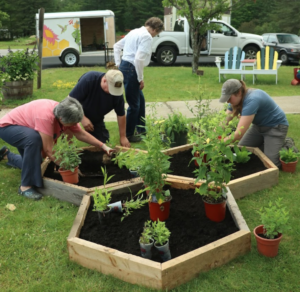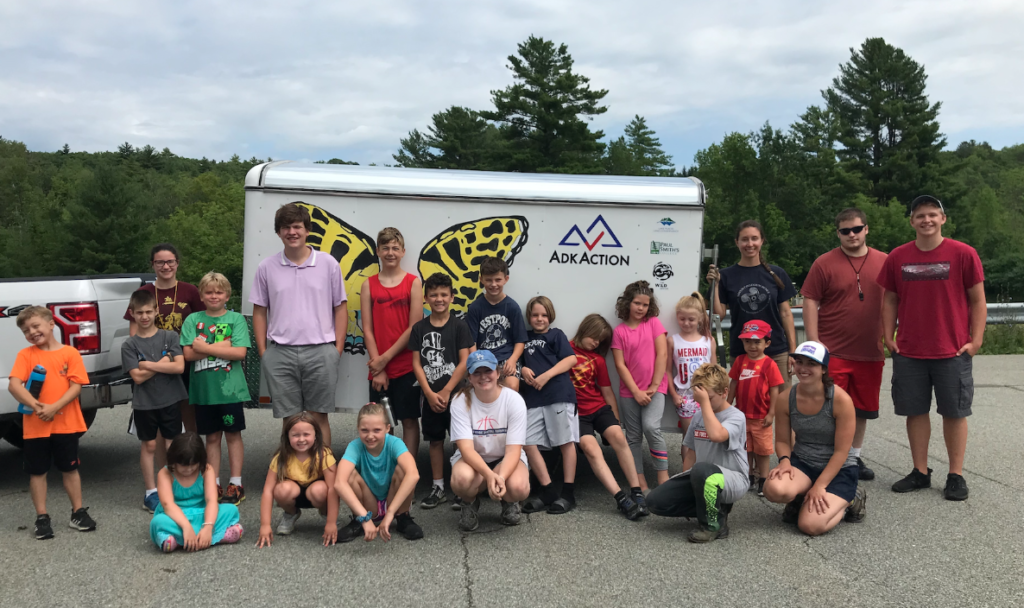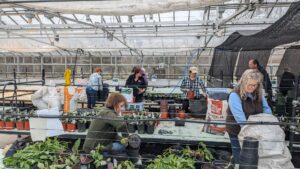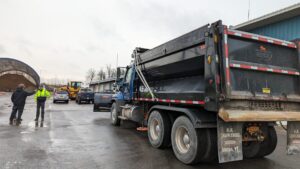The Adirondack Pollinator Project has been busy as a bee this summer, as our new Mobile Trailer has been involved in installing eight new native wildflower gardens all over the Adirondack region. The gardens sites include Northwood School, Essex Town Offices, BlueSeed Studios, Chazy Presbyterian Church, Upper Jay Library, Indian Lake Library, Adirondack Woodcrafts Camp in Old Forge, and Westport Central School. We are also working with Lake Placid Center for the Arts and Garden Club of Lake Placid.
The garden installations were made possible with the help of over 75 volunteers and community members of all ages. We purchased the Mobile Pollinator Garden Trailer with a grant from Flow Hive and outfitted the trailer with tools donated entirely by Coakley Hardware in Saranac Lake! AdkAction members have supported the gardens as well, donating $760 to pay for the plants we installed at 3 of the garden locations. If you are interested in sponsoring a garden, you are most welcome to do so at this link.
Each garden displays a sign that details the importance of pollinator habitat and helps to educate those who pass by that these gardens are more than just beautiful flowers, they are conservation at work to protect biodiversity and our food supply.
A pollinator garden is one planted mostly with flowers that provide nectar or pollen for a broad range of pollinating insects. Native flowering plants are best, and pesticides are forbidden. These habitats can be beautiful and they attract birds and other wildlife in addition to pollinators. The new roving trailer will save time, energy and resources to install community pollinator gardens, by providing an enclosed trailer containing all necessary tools, supplies, mulch, some soil or compost, plus seeds and plants.
It is always amazing to see how quickly pollinators are attracted to these gardens as bees, butterflies, and other critters instantly flock to the plants as soon as we get them into the ground. We were even able to release some monarchs at the Indian Lake Library installation. They were very appreciative of the swamp milkweed we planted. The positive impacts of these gardens will only continue to grow as the plants grow and our communities enjoy them.





